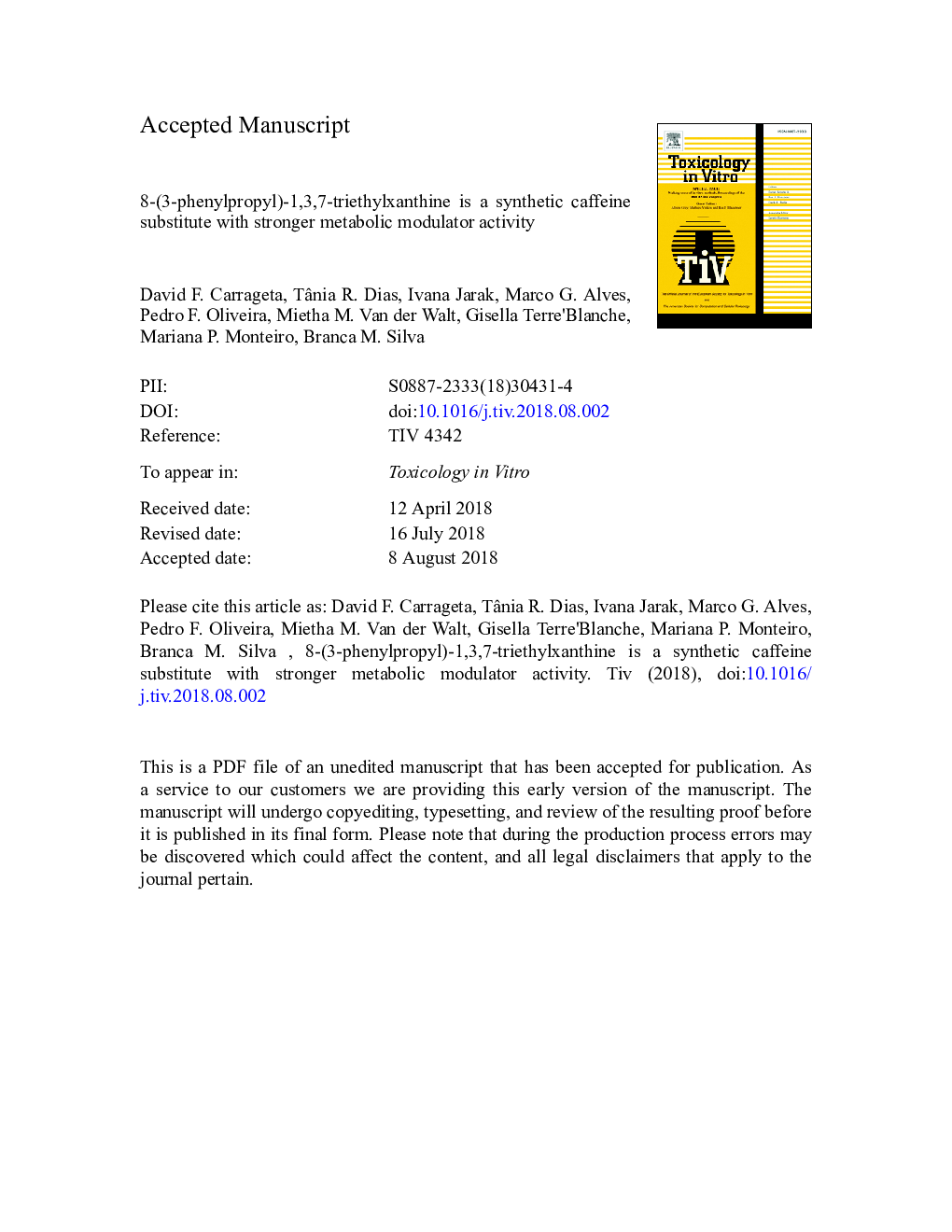| کد مقاله | کد نشریه | سال انتشار | مقاله انگلیسی | نسخه تمام متن |
|---|---|---|---|---|
| 8553695 | 1562692 | 2018 | 26 صفحه PDF | دانلود رایگان |
عنوان انگلیسی مقاله ISI
8-(3-phenylpropyl)-1,3,7-triethylxanthine is a synthetic caffeine substitute with stronger metabolic modulator activity
دانلود مقاله + سفارش ترجمه
دانلود مقاله ISI انگلیسی
رایگان برای ایرانیان
موضوعات مرتبط
علوم زیستی و بیوفناوری
علوم محیط زیست
بهداشت، سم شناسی و جهش زایی
پیش نمایش صفحه اول مقاله

چکیده انگلیسی
Caffeine is one of the most worldwide consumed methylxanthines. It is well-known for its thermogenic and cell metabolism modulating effects. Based on methylxanthines' chemical structure, 8-(3-phenylpropyl)-1,3,7-triethylxanthine (PTX) is a novel adenosine antagonist with higher receptor affinity than caffeine. Therefore, we hypothesized that PTX metabolic effects could be stronger than those of caffeine. For that purpose, murine 3T3-L1 cells were cultured in the presence of increasing doses of PTX or caffeine (0.1, 1, 10 and 100â¯Î¼M) for 24â¯h. Cytotoxicity was evaluated by reduction of tetrazolium salt (MTT) and lactate dehydrogenase (LDH) release. Cell metabolites released to the culture medium were identified and quantified by proton nuclear magnetic resonance (1H NMR). Cellular oxidative profile was also evaluated. Our results showed that PTX displayed no signs of cytotoxicity at all studied concentrations. When compared with caffeine, PTX increased glucose, pyruvate, and glutamine consumption, as well as lactate, alanine, and acetate production. Additionally, PTX decreased protein oxidation, thus protecting against oxidative stress-induced damage. These results illustrate that PTX is a stronger and less cytotoxic caffeine substitute with potential applications as metabolic modulator and a good candidate for novel drug design.
ناشر
Database: Elsevier - ScienceDirect (ساینس دایرکت)
Journal: Toxicology in Vitro - Volume 53, December 2018, Pages 114-120
Journal: Toxicology in Vitro - Volume 53, December 2018, Pages 114-120
نویسندگان
David F. Carrageta, Tânia R. Dias, Ivana Jarak, Marco G. Alves, Pedro F. Oliveira, Mietha M. Van der Walt, Gisella Terre'Blanche, Mariana P. Monteiro, Branca M. Silva,